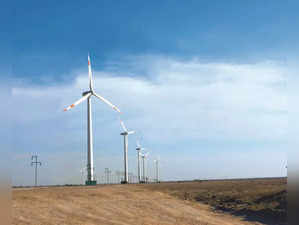
Budget with ET
The Climate Change and the Intergovernmental Panel on Climate Change (IPCC) report echoes this alarming narrative. Global emissions are propelling us toward surpassing the critical 1.5°C warming threshold, triggering catastrophic consequences such as rising sea levels, intensified extreme weather events, and large-scale displacement. Recent UN climate data further emphasizes this distressing trend, demanding immediate and concerted action.
The perilous state of our environment becomes evident in the polluted air we breathe. Major cities across the world grapple with alarming levels of air pollution, exacerbated by industrial discharges, vehicle emissions, and extensive construction. Recent research report a 10–25% surge in respiratory illnesses due to these factors.
Toxic pollution identified by the World Health Organization (WHO) as a significant risk factor for global non-communicable diseases contributes significantly to various health issues. Shockingly, 16% of all global deaths, totalling 7 million annually, are attributed to toxic pollution. Urgent and ambitious emission reductions are crucial to proactively address these health hazards linked to climate change, particularly in fast-growing nations.
However, current emission reduction commitments by nations fall short, revealing a 20 gigaton gap identified by the International Energy Agency. This discrepancy underscores the critical need for countries to revisit and significantly bolster their emission reduction goals.
COP28, currently in progress, stands as a pivotal platform for global leaders to confront this challenge head-on by committing to ambitious and achievable emission reduction targets. A radical shift, akin to a war-based approach, is needed, demanding swift and drastic actions.
Developed nations must establish robust net-zero goals by 2050 at the latest, necessitating the phasing out of fossil fuels in favour of clean energy sources. Simultaneously, they should extend financial and technical support to aid developing countries in their transition efforts.
Conversely, developing nations must execute comprehensive national adaptation plans, prioritizing resilience-building against climate change impacts like heatwaves, floods, and droughts.
The role of accelerated adoption of Renewable Energy in emission reduction cannot be underestimated. Today the answer to most of the world’s climate related impacts can be effectively mitigated by the healing powers of green renewable energy.
A substantial surge in investments in renewable energy technologies, coupled with collaborative efforts between the public and private sectors, is paramount.
Carbon pricing mechanisms, such as carbon taxes or cap-and-trade systems, incentivize emission reductions and create a level playing field for businesses, furthering the cause.
Preservation and restoration of forests, crucial carbon sinks, are pivotal in mitigating climate change and demand prioritization.
Transparency and accountability in reporting emissions and progress toward targets are non-negotiable, necessitating robust monitoring and evaluation frameworks.
The climate crisis poses an existential threat to human health and well-being. Urgency and ambition must underpin our efforts to meet ambitious emission reduction goals, paving the way for a sustainable future for all. COP28 offers a timely opportunity to steer the world toward a fairer and more equitable future.
Millions of lives hang in the balance. Let's rise to the challenge and create a world where clean air and a healthy planet are not mere aspirations but tangible realities for everyone. The time for action is now.
Read More News on
(Catch all the Business News, Breaking News, Budget 2024 Events and Latest News Updates on The Economic Times.)
Subscribe to The Economic Times Prime and read the ET ePaper online.
Read More News on
(Catch all the Business News, Breaking News, Budget 2024 Events and Latest News Updates on The Economic Times.)
Subscribe to The Economic Times Prime and read the ET ePaper online.









































 Get Unlimited Access to The Economic Times
Get Unlimited Access to The Economic Times
